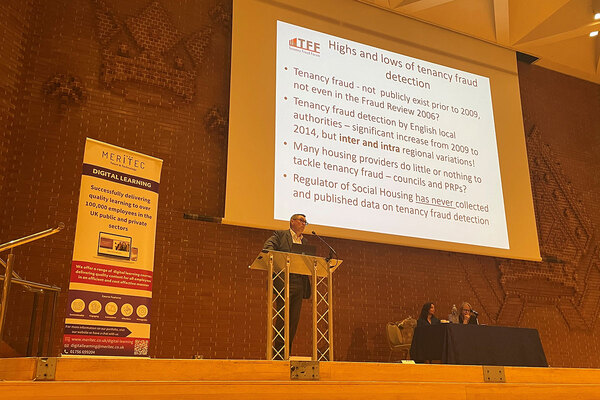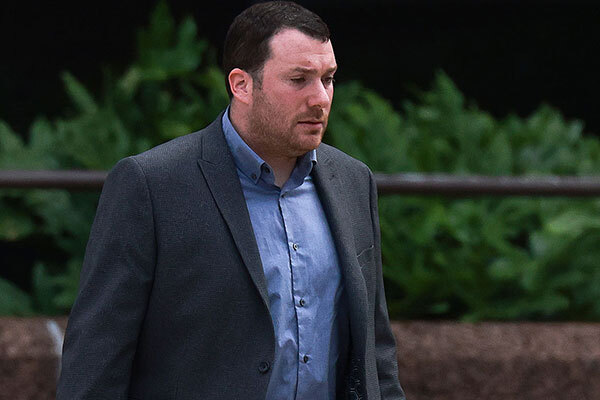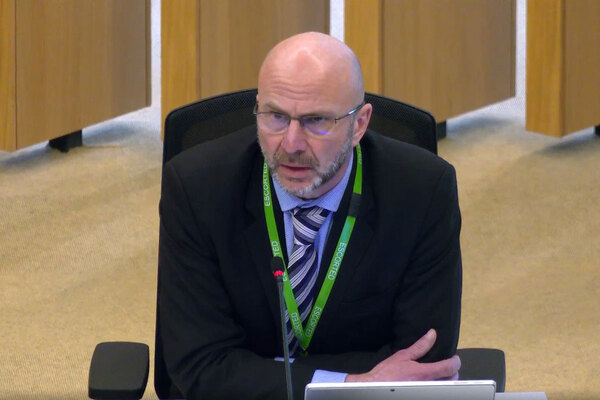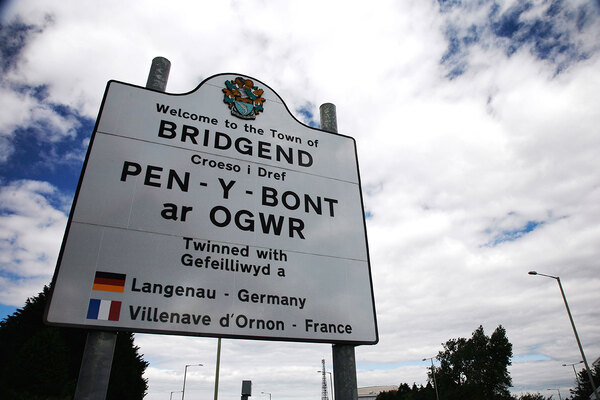You are viewing 1 of your 1 free articles
Nearly 150,000 social homes involved in tenancy fraud, report warns
New research on social housing fraud in England suggests that at least 148,000 homes could be subject to some form of criminal activity.
The research was unveiled at the annual Tenancy Fraud Forum (TFF), in partnership with the Fraud Advisory Panel, at Kensington Town Hall yesterday.
The report, Lost homes, lost hope: social housing fraud in England – recovering social homes for those in need, examines the issue in its various guises, as well as the unlawful occupation of social housing property.
Alan Bryce, interim head of the Fraud Advisory Panel and a non-executive committee member of the TFF, who authored the report, told hundreds of delegates at the conference that the failure of the government and the Regulator of Social Housing (RSH) to get a grip on this issue amounted to a “failure of leadership”.
The report attempts to address the lack of official data and the financial cost of the problem, which it put at an average of £42,000 per property.
The current nationally accepted estimate of the scale of tenancy fraud in England is “at least 98,000 social homes”, but this figure was published by the Audit Commission in 2012.
The TFF’s new analysis puts the figure at at least 1 in 20 in London and 1 in 30 outside London, totalling at least 148,000 social homes in England that are subject to some form of tenancy fraud.
This is because there is a “detection gap”: the difference between the forum’s estimates for the “actual” number of reported detections and what could have been possible had “good practice” been followed, Mr Bryce said.
The TFF said its estimate included a number of factors, such as a reduction in detection resources to recover properties from fraudsters, rising rental costs and the cost of living crisis, and the increase in short-term lets in recent years.
The TFF believes the issue is pressing, because 95,000 families are currently in temporary accommodation and more than 1.2 million families are on the housing waiting list in England.
Mr Bryce said: “Our research across England paints a depressing picture of public waste and missed opportunities, with both a lack of data and accountability, but this is not the worst of it.
“Evidence of a weakening commitment and limited efforts to adopt good practice in managing tenancy fraud risk by many local authorities and housing associations have resulted in a significant ‘detection deficit’.
“Social housing is for those in genuine need, not for fraudsters to exploit for their own personal gain. It is time for the government, the Regulator of Social Housing and housing providers to show leadership and take long-overdue action.”
Mr Bryce said that, had good practice been adopted widely since 2015, levels of detected tenancy fraud might have doubled. Instead, they have halved. This has led to a significant cost to the public purse, as nearly 150,000 social homes were exploited and misused for criminal gain.
“Our research makes grim reading for social housing providers, central government and the Regulator of Social Housing, as well as the tens of thousands of homeless families in temporary accommodation, due in no small part to the continued failure to tackle the problem,” he said.
Katrina Robinson, chair of the TFF, said: “While this report cannot begin to fill the data chasm between social housing stakeholders and a calibrated fraud response, we hope our research will start to build a bridge to reignite the social housing fraud debate and directly help to tackle the housing difficulties faced by thousands of people.
“Without the support of central government and the regulator, the problem will only get worse, so it’s up to us to do everything we can to raise awareness of the issue and what can be done to tackle it.”
In response, the RSH said: "Landlords are responsible for detecting and managing cases of tenancy fraud. We have a limited role which relates to landlords’ compliance with our tenancy standard.
"This requires all landlords to publish clear and accessible policies on their approach to tenancy management, including the measures they are taking to tackle tenancy fraud. If an issue is referred to us and we find organisation-wide failures in relation to our standards, then we will take appropriate action."
Sign up for our regulation and legal newsletter
Already have an account? Click here to manage your newsletters












